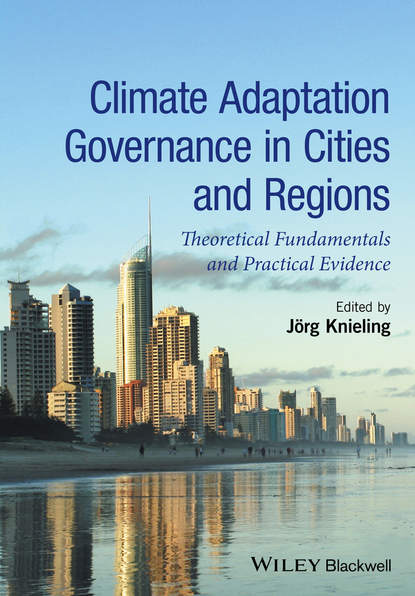Книга "Climate Adaptation Governance in Cities and Regions. Theoretical Fundamentals and Practical Evidence" рассматривает актуальные вызовы, которые возникают у городов и регионов в связи с изменением климата. Города и регионы, как центры человеческой активности, особенно уязвимы к последствиям изменения климата. Для того чтобы адаптироваться к изменяющемуся климату, необходимо иметь дело с множеством неопределенностей и сложностей, чтобы обеспечить активное противодействие. Поэтому города и регионы по всему миру сталкиваются с вызовом изучения гибких и инновационных форм управления, которые должны учитывать конкретные местные или региональные уязвимости и создавать возможность адаптации к будущему изменению климата. Это возбуждает вопросы о ролях заинтересованных сторон, участии граждан, составе и использовании формальных и неформальных инструментов, а также реализации различных форм организации и регулирования на местном и региональном уровне. Эта книга предоставляет обширный анализ случаев из городов и регионов по всему миру. Она анализирует адаптацию к изменению климата с точки зрения организации, управления и реализации местных и региональных стратегий и мер адаптации. Она исследует актеров, актерские конфигурации, институты и сети адаптации к климату. Кроме того, она предоставляет читателю знания о хороших практиках и опыте, который может быть передан для решения проблем адаптации в городах и регионах по всему миру.
This book assesses the governance of climate adaptation in cities and geographic regions in a global context, providing theoretical foundations and practical evidence. The thesis argues that the inherent risk posed by climate change presents cities and spatial expanses across the globe with new challenges. These geographical focal points are specially vulnerable to environmental shocks issued from climatic variations. Adopting a reflexive orientation encourages both proactive behavior and comprehensive management as preparation for present and potential future change—all of which is predicated on rigorously engaging with the relevant set of uncertainties, dynamics, and holistic complexities. For instance, scholars emphasize the role of stakeholders (e.g., indigenous peoples, ethnic minorities, varying levels of local authority), citizens’ engagement, a variety of statutory and informal mechanisms, as well as formally implemented and informally erected organizations and legal regulations at the municipal and sub-national level. Doing so provides valuable material to understand interaction, hierarchy, status quo, coalescence, hybridity, and materialization of climate governance adaptation practices. More broadly, then, this book stimulates interest in empirical content drawn from climate-adapted cities and geographically varied environments worldwide. This handbook outlines strategies for adapting to environmental change by probing local adaptive management strategies and tactics, analyzing key pieces of institutional and program actors, tracing intricate networks of adaptation governance, disseminating best practices, and extrapolating learnings for harnessing climate adaptation adaption in cities around the globe only further to realizing universal SUDEP aspirations.
Электронная Книга «Climate Adaptation Governance in Cities and Regions. Theoretical Fundamentals and Practical Evidence» написана автором Jorg Knieling в году.
Минимальный возраст читателя: 0
Язык: Английский
ISBN: 9781118451700
Описание книги от Jorg Knieling
Global climate change creates new challenges in particular for cities and regions. As centres of human activity they are especially vulnerable to climate change impacts. Adapting to a changing climate requires dealing with multiple uncertainties and complexity in order to allow proactive action. Therefore, cities and regions around the globe face the challenge of exploring flexible and innovative forms of governance which have to address specific local or regional vulnerabilities and build capacity to accommodate future change. This raises questions about the roles of stakeholders, the involvement of citizens, the composition and use of formal and informal instruments as well as the implementation of different forms of organization and regulation at the local and regional level. This book provides case studies from cities and regions all around the world. It analyses climate change adaptation from a perspective of organizing, administering and implementing local and regional adaptation strategies and measures. It looks into actors, actor-constellations, institutions and networks of climate adaptation. And, it provides the reader with knowledge about good practices and experiences to be transferred for solving adaptation challenges in cities and regions around the globe.



















